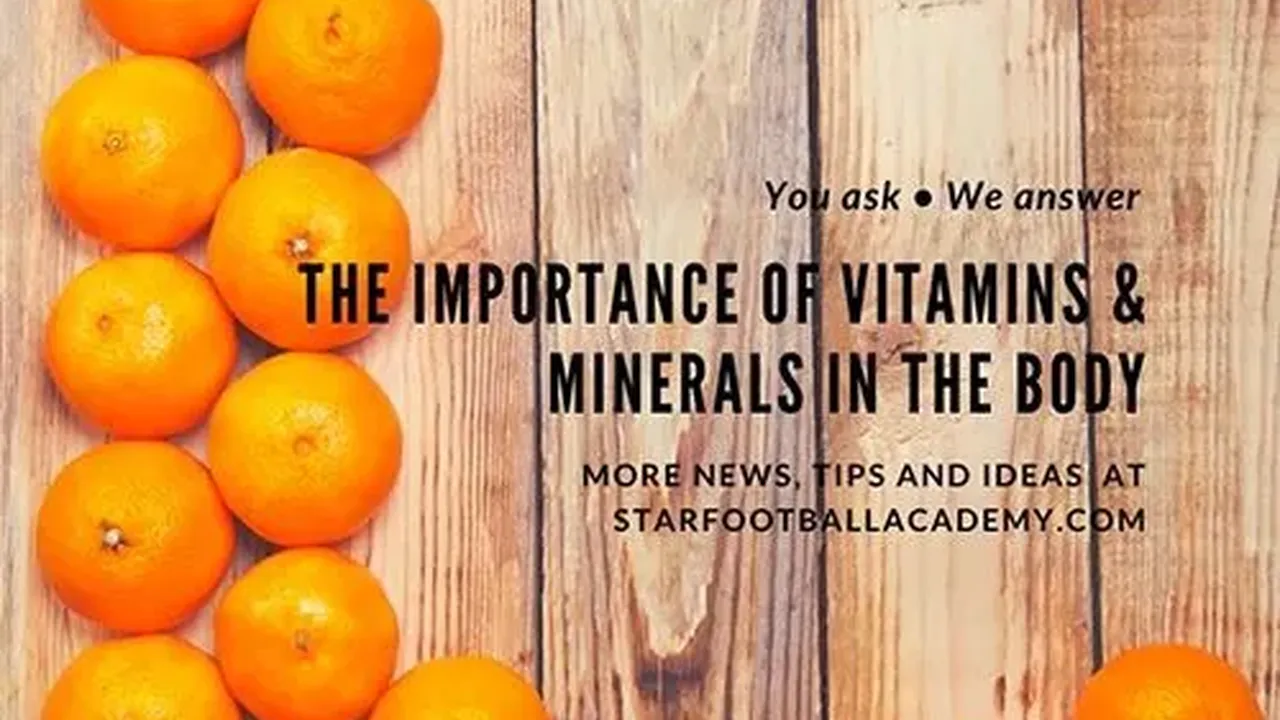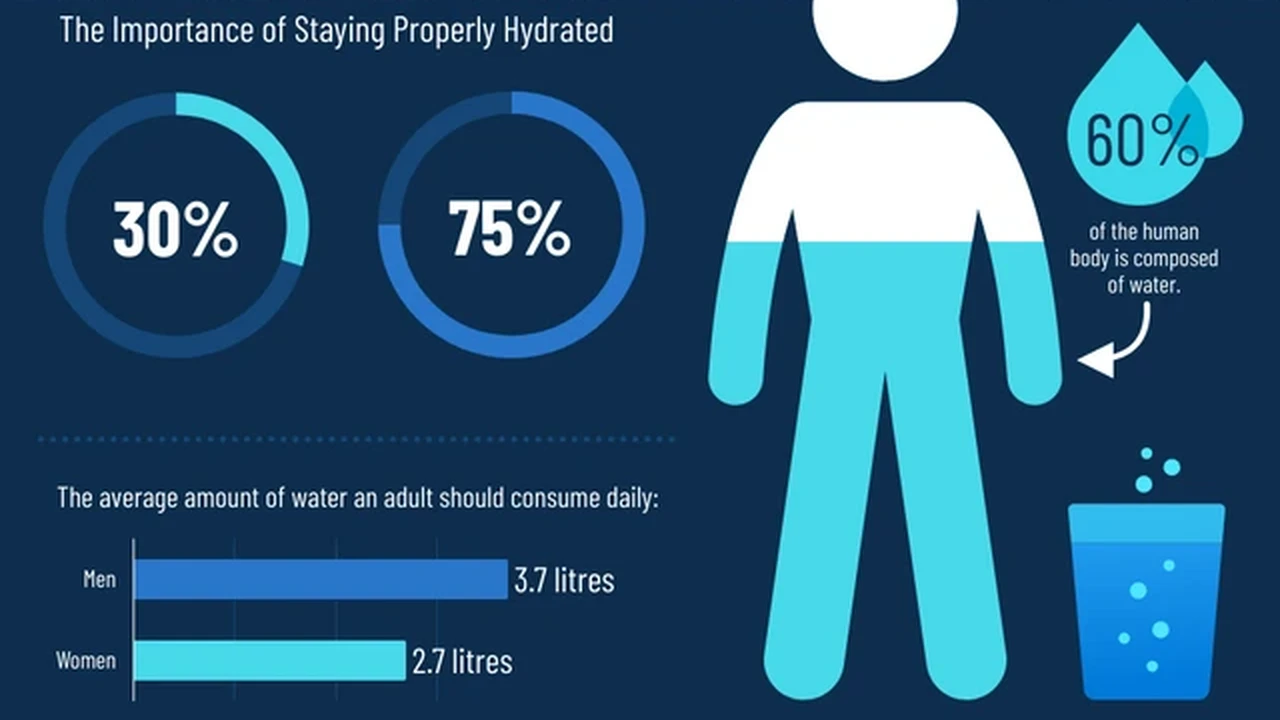The Role of Vitamins and Minerals in Overall Health
Sample meta description.

Understanding Essential Vitamins and Minerals for Optimal Health
Alright, let's dive into the world of vitamins and minerals! These tiny powerhouses are absolutely crucial for pretty much everything our bodies do. They're like the unsung heroes of our health, working behind the scenes to keep us running smoothly. We're talking about everything from energy production to bone strength, immune function to even our mood. Without enough of these vital nutrients, we can start to feel sluggish, get sick more often, and just not be our best selves. So, what exactly are vitamins and minerals, and why are they so darn important?
Think of vitamins as organic compounds that our bodies need in small amounts to function properly. Minerals, on the other hand, are inorganic substances that also play a vital role in our health. The cool thing is that they work together synergistically. Some vitamins need specific minerals to be absorbed properly, and vice versa. It’s a whole team effort!
Key Vitamins and Their Health Benefits: A Detailed Overview
Let's break down some of the key vitamins and see what they do for us:
- Vitamin A: This one's a superstar for vision, immune function, and cell growth. Think carrots for good eyesight!
- Vitamin C: A powerful antioxidant that boosts our immune system and helps with collagen production for healthy skin. Oranges are your best friend!
- Vitamin D: Essential for calcium absorption and bone health. Sunshine is a great source, but many people need supplements, especially in the winter.
- Vitamin E: Another antioxidant that protects our cells from damage. Found in nuts, seeds, and vegetable oils.
- B Vitamins (B1, B2, B3, B5, B6, B7, B9, B12): A whole family of vitamins that are crucial for energy production, nerve function, and cell growth. They're found in a wide variety of foods. B12 is particularly important for vegans and vegetarians.
- Vitamin K: Important for blood clotting and bone health. Found in leafy green vegetables.
And that's just the tip of the iceberg! Each vitamin has its own unique role to play, and getting enough of each one is essential for overall health.
Important Minerals and Their Role in Maintaining Wellbeing
Now, let's talk minerals! These are just as important as vitamins. Here are a few key ones:
- Calcium: Crucial for strong bones and teeth. Also plays a role in muscle function and nerve transmission. Dairy products are a good source, but you can also find it in leafy greens and fortified foods.
- Iron: Essential for carrying oxygen in our blood. Iron deficiency can lead to fatigue and anemia. Red meat is a good source, but you can also find it in beans, lentils, and spinach.
- Potassium: Helps regulate blood pressure and muscle function. Found in bananas, sweet potatoes, and avocados.
- Magnesium: Involved in over 300 enzymatic reactions in the body! It's important for muscle function, nerve function, and blood sugar control. Found in nuts, seeds, and leafy green vegetables.
- Zinc: Essential for immune function, wound healing, and cell growth. Found in oysters, beef, and pumpkin seeds.
- Iodine: Crucial for thyroid hormone production, which regulates metabolism. Found in iodized salt and seafood.
Just like vitamins, minerals are essential for a wide range of bodily functions. Making sure you get enough of each one is key to staying healthy and feeling your best.
Dietary Sources vs Supplements: The Best Ways to Get Your Vitamins and Minerals
So, how do we get all these vitamins and minerals? Ideally, we should be getting them from our diet. Eating a balanced diet rich in fruits, vegetables, whole grains, and lean protein is the best way to ensure we're getting all the nutrients we need. However, sometimes it's not always possible to get everything we need from food alone. That's where supplements come in.
Supplements can be a helpful way to fill in the gaps in our diet. They can be especially useful for people who have certain dietary restrictions, such as vegans or vegetarians, or for people who have certain medical conditions that affect their ability to absorb nutrients. However, it's important to remember that supplements are not a replacement for a healthy diet. They should be used to supplement a healthy diet, not to replace it.
Choosing the Right Vitamin and Mineral Supplements: A Comprehensive Guide
If you're considering taking supplements, it's important to choose them wisely. Not all supplements are created equal. Here are a few things to keep in mind:
- Talk to your doctor: Before starting any new supplement regimen, talk to your doctor. They can help you determine if you need supplements and which ones are right for you.
- Choose reputable brands: Look for supplements that have been tested by a third-party organization, such as USP or NSF International. This ensures that the supplement contains what it says it does and that it's free of contaminants.
- Read the label carefully: Pay attention to the dosage and the list of ingredients. Avoid supplements that contain unnecessary fillers or additives.
- Be aware of potential interactions: Some supplements can interact with medications. Be sure to tell your doctor about all the supplements you're taking.
Specific Product Recommendations: Vitamins and Minerals for Your Needs
Okay, let's get down to some specific product recommendations. Keep in mind that these are just suggestions, and it's always best to talk to your doctor before starting any new supplement regimen.
Multivitamins: A Good Foundation for Overall Health
A good multivitamin can be a great way to cover your bases and ensure you're getting a wide range of vitamins and minerals. Here are a couple of options:
- Nature Made Multi Daily: This is a budget-friendly option that provides a good dose of essential vitamins and minerals. It's widely available and generally well-tolerated. Price: Around $10-$15 for a 100-day supply.
- Thorne Research Basic Nutrients 2/Day: This is a higher-quality multivitamin that contains more bioavailable forms of vitamins and minerals. It's a bit more expensive, but it's a good option if you're looking for a more comprehensive supplement. Price: Around $30-$40 for a 60-day supply.
Usage Scenario: Take one tablet daily with food. This is a good option for people who want to ensure they're getting all the essential vitamins and minerals, especially if they don't always eat a perfectly balanced diet.
Vitamin D: Essential for Bone Health and Immune Function
Many people are deficient in Vitamin D, especially during the winter months. A supplement can help ensure you're getting enough.
- NatureWise Vitamin D3 5000 IU: This is a popular and well-reviewed Vitamin D3 supplement. It's made with organic olive oil and is easy to swallow. Price: Around $15-$20 for a 360-day supply.
- Garden of Life Vitamin D3 Organic: This is a plant-based Vitamin D3 supplement made from lichen. It's a good option for vegans and vegetarians. Price: Around $20-$25 for a 60-day supply.
Usage Scenario: Take one softgel daily with a meal containing fat. Vitamin D is fat-soluble, so it's best absorbed when taken with fat. This is particularly important for people who live in northern climates or who don't get much sun exposure.
Magnesium: For Muscle Function, Nerve Function, and Blood Sugar Control
Magnesium deficiency is also common. A supplement can help support healthy muscle and nerve function.
- Natural Vitality Calm: This is a powdered magnesium supplement that you mix with water. It's a good option for people who have trouble swallowing pills. It also has a calming effect, which can be helpful for people who struggle with anxiety or sleep problems. Price: Around $20-$25 for a 16-ounce container.
- Doctor's Best High Absorption Magnesium Glycinate: This is a magnesium glycinate supplement, which is a highly absorbable form of magnesium. It's less likely to cause digestive upset than other forms of magnesium. Price: Around $15-$20 for a 120-capsule bottle.
Usage Scenario: For Natural Vitality Calm, mix 2 teaspoons with hot or cold water. For Doctor's Best, take 2 capsules twice daily. Magnesium can be taken at any time of day, but some people find it helpful to take it before bed to promote relaxation.
Omega-3 Fatty Acids: For Heart Health, Brain Health, and Joint Health
Omega-3 fatty acids are essential fats that our bodies can't produce on their own. They're important for a variety of health benefits.
- Nordic Naturals Ultimate Omega: This is a high-quality omega-3 supplement that provides a good dose of EPA and DHA. It's made from sustainably sourced fish oil and is rigorously tested for purity. Price: Around $30-$40 for a 60-softgel bottle.
- Sports Research Omega-3 Triple Strength: This is another high-quality omega-3 supplement that provides a concentrated dose of EPA and DHA. It's also third-party tested for purity. Price: Around $25-$35 for a 60-softgel bottle.
Usage Scenario: Take 2 softgels daily with food. Omega-3 fatty acids are best absorbed when taken with fat. This is a good option for people who don't eat a lot of fatty fish, such as salmon or tuna.
Comparing Products: Making the Right Choice for Your Needs
When choosing supplements, it's important to consider your individual needs and preferences. Here's a quick comparison of the products mentioned above:
| Product | Key Benefits | Price Range | Considerations |
|---|---|---|---|
| Nature Made Multi Daily | Affordable, good basic coverage | $10-$15 | May not be suitable for people with specific nutrient deficiencies. |
| Thorne Research Basic Nutrients 2/Day | Higher quality, more bioavailable forms | $30-$40 | More expensive than other multivitamins. |
| NatureWise Vitamin D3 5000 IU | Popular, well-reviewed, organic olive oil | $15-$20 | Ensure you have your Vitamin D levels checked by a doctor before supplementing. |
| Garden of Life Vitamin D3 Organic | Plant-based, vegan-friendly | $20-$25 | May be less potent than other Vitamin D3 supplements. |
| Natural Vitality Calm | Powder form, calming effect | $20-$25 | May not be as convenient as capsules. |
| Doctor's Best High Absorption Magnesium Glycinate | Highly absorbable, less likely to cause digestive upset | $15-$20 | Capsules may be difficult to swallow for some. |
| Nordic Naturals Ultimate Omega | High quality, sustainably sourced | $30-$40 | More expensive than other omega-3 supplements. |
| Sports Research Omega-3 Triple Strength | Concentrated dose, third-party tested | $25-$35 | May have a fishy aftertaste for some. |
Potential Side Effects and Precautions: Staying Safe with Supplements
While supplements can be beneficial, it's important to be aware of potential side effects and precautions. Some supplements can interact with medications or cause adverse effects in certain individuals. Always talk to your doctor before starting any new supplement regimen, especially if you have any underlying health conditions or are taking any medications.
Some common side effects of supplements include digestive upset, nausea, and headache. In rare cases, supplements can cause more serious side effects, such as liver damage or kidney damage. It's important to follow the recommended dosage and to discontinue use if you experience any adverse effects.
Incorporating Vitamins and Minerals into Your Daily Routine: Practical Tips and Strategies
Alright, so how do we actually incorporate these vitamins and minerals into our daily routine? Here are a few practical tips and strategies:
- Start with a healthy diet: Focus on eating a balanced diet rich in fruits, vegetables, whole grains, and lean protein. This is the foundation of good health and will provide you with most of the nutrients you need.
- Plan your meals: Meal planning can help you ensure you're getting a variety of nutrients. Try to incorporate different fruits and vegetables into your meals each day.
- Read food labels: Pay attention to the nutrition facts labels on food products. This can help you identify foods that are high in vitamins and minerals.
- Consider supplementation: If you're not getting enough of certain nutrients from your diet, consider taking supplements. Talk to your doctor to determine which supplements are right for you.
- Be consistent: Consistency is key when it comes to getting enough vitamins and minerals. Make it a habit to eat a healthy diet and take your supplements regularly.
By following these tips and strategies, you can ensure you're getting enough vitamins and minerals to support your overall health and wellbeing.
:max_bytes(150000):strip_icc()/277019-baked-pork-chops-with-cream-of-mushroom-soup-DDMFS-beauty-4x3-BG-7505-5762b731cf30447d9cbbbbbf387beafa.jpg)






